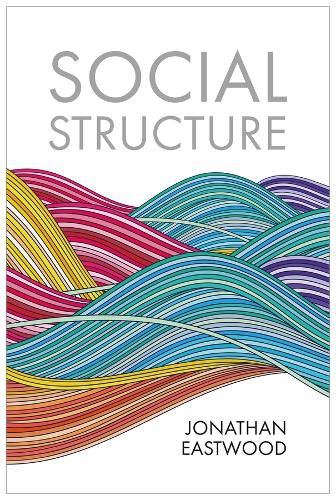Readings Newsletter
Become a Readings Member to make your shopping experience even easier.
Sign in or sign up for free!
You’re not far away from qualifying for FREE standard shipping within Australia
You’ve qualified for FREE standard shipping within Australia
The cart is loading…






Social structure is arguably the central concept of sociology, and in recent years a much wider public has taken up with fresh vigor the sociological idea that persistent inequalities are rooted in social structures. Yet there seem to be as many definitions of the term as there are sociologists, and we often struggle to articulate accessible yet precise accounts of structures that can guide empirical research and other kinds of action.
Jonathan Eastwood offers a set of pragmatic strategies for thinking about social structures, emphasizing ways in which we can approach them as complex lacings of relationships, representations, and rules. He then teases out a variety of implications of these strategies for qualitative and quantitative research, the analysis of social problems, and the implementation of social policies. Written for advanced undergraduate and graduate students as well as fellow scholars, this insightful book contributes to our understanding of this fundamental and dynamic ingredient of social life.
$9.00 standard shipping within Australia
FREE standard shipping within Australia for orders over $100.00
Express & International shipping calculated at checkout
Social structure is arguably the central concept of sociology, and in recent years a much wider public has taken up with fresh vigor the sociological idea that persistent inequalities are rooted in social structures. Yet there seem to be as many definitions of the term as there are sociologists, and we often struggle to articulate accessible yet precise accounts of structures that can guide empirical research and other kinds of action.
Jonathan Eastwood offers a set of pragmatic strategies for thinking about social structures, emphasizing ways in which we can approach them as complex lacings of relationships, representations, and rules. He then teases out a variety of implications of these strategies for qualitative and quantitative research, the analysis of social problems, and the implementation of social policies. Written for advanced undergraduate and graduate students as well as fellow scholars, this insightful book contributes to our understanding of this fundamental and dynamic ingredient of social life.